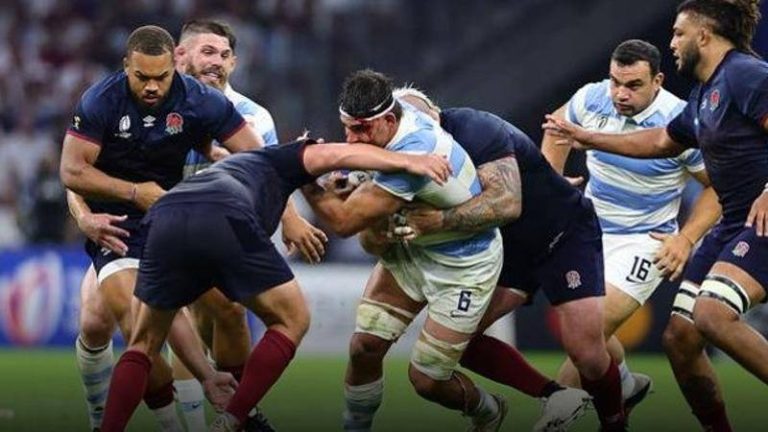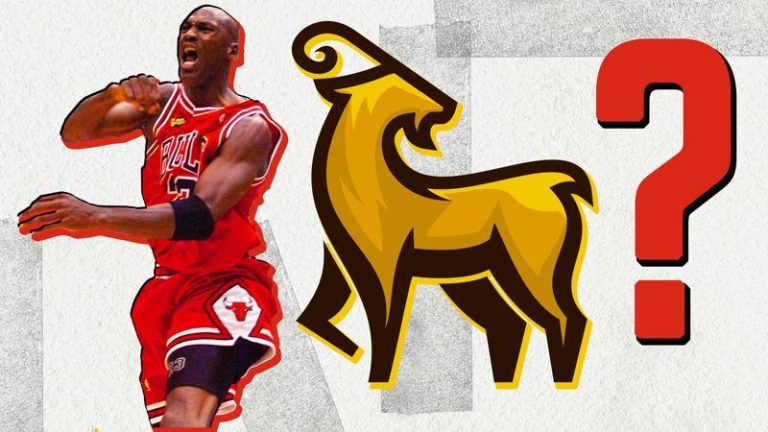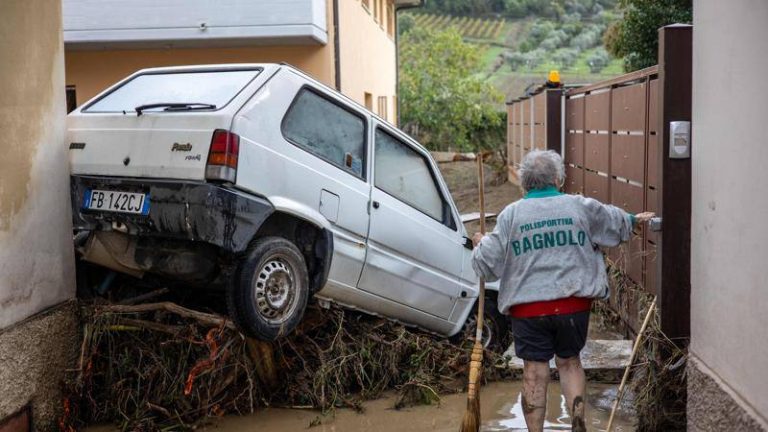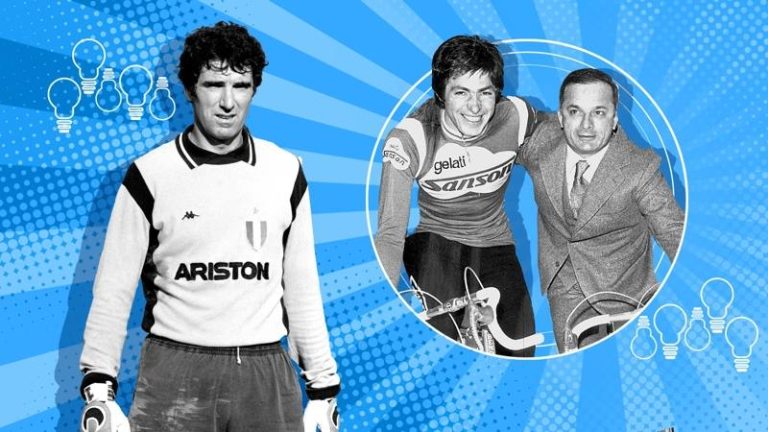The Pumas have always lost in the four previous World Cups, but they want to rewrite history: from Che Guevara’s passion to the miracle of 2007, to the country where the British brought the oval ball
@robertoparretta
There is a strange connection between Argentina, which finished third at the Rugby World Cup in 2007, its best ever result, and the team that will challenge England in the 2023 World Cup final in Saint-Denis tomorrow at 9pm: even then The Pumas began and ended the tournament by challenging the same team that had hosted France 16 years ago. The difference so far, however, lies in the results: Back then, Argentina won both games, this time starting from the defeat in the debut game. An unexpected defeat that came in a bizarre way, with the English outnumbered from the 3rd minute due to Tom Curry’s red card, but able to confuse the opponent’s game and then thanks to George Ford’s 6 placed goals and 3 with 27-10 won drops.
IL CHE, IL SIC, IL ROSARIO CENTRAL
—
The two teams also faced each other in the semi-final of the Japanese World Cup 4 years ago, when England won 39-10 in the semi-final. The tradition of games played as part of the World Cup tournament, on the other hand, is entirely focused on the team side, with two other victories: 24:18 in South Africa in 1995, 13:9 in New Zealand in 2011. The rugby in Die Arrival of Argentina thanks to the English is well known, but there is a much less well-known anecdote that tells that for decades the sport was surrounded by the general disinterest of Argentines. Serious El Che As we know, in his youth, Guevara was a decent rugby player, appreciated due to the combination of the word “furibondo” and his mother’s surname “de la Serna” and nicknamed “Fuser”: he played there as a cover for nine years various roles, from scrum-half to third row, between Estudiantes of Cordoba and the San Isidro Club (simply SIC for everyone), one of the most important clubs in the country. In August 1961, while holding the position of Minister of Industry in Cuba, he secretly traveled to Argentina to meet President Arturo Frondizi: no one knew that this would be Che’s last visit to his homeland. During the drive from Ezeiza Airport to the Presidential Palace, the small and secret procession passed right in front of the SIC Stadium and the commander asked the driver: “How is the SIC lately?” And the driver replied with a confused “How is who ?”. From the answer, Che realized that rugby had not yet managed to penetrate the passions of his compatriots, so he corrected himself, perhaps to make a good impression: “I meant, how is Rosario Central?”, because Everyone knew that it was the most important football team in his hometown in the province of Santa Fe. Many years had passed since the English exported rugby and football to Argentina in the early 19th century, but those who practiced it, like Che Guevara, clearly had no idea that it was so little known among the population.
ELITE AGAINST THE PEOPLE
—
The beginnings of rugby in Argentina can hardly be distinguished from those of football, as at the beginning in England there was no clear distinction between the two sports and the historical dates and references were rather unclear. And also because the rules of the two sports were not formalized at either national or international level. In addition, both sports were often played in Argentina, as the English had founded and managed multi-sport clubs, which also included rowing, cricket and tennis, in order to keep together the community of expatriate compatriots who were interested in the national sport. However, unlike football, rugby has not established itself as a strong symbol of “Argentine identity”. A difficulty that is also linked to the social status of the athletes, since rugby, unlike football, which is generally popular, is historically linked to the elite. Martin Caparros, Argentine journalist and writer, says: “While footballers were dark-haired, foundlings, poor and ignorant, rugby players were blonde, well-built, educated and amateurs: because they didn’t need money.” However, his opinion is not shared by everyone, not Once by Gonzalo Quesada, historic full-back of the Argentine national team and new coach of Italy, who replied in an old interview with Le Monde: “That is true at this point in time.” Origins Rugby was a bourgeois and elitist sport in Argentina, but things have changed developed further, even if we continue to be viewed this way in France and elsewhere. However, thanks to the progress and results of the Pumas from 1965 to the success of 2007, when we came third, this sport is no longer considered exclusive and there is a mix of different social components in the clubs.” This third place marked the turning point: “Immediately after the World Cup, rugby team registrations increased by 20%,” says former national team captain Adolfo Etchegaray. That’s why tomorrow night’s game could mark a new turning point for Argentina: victory against the nation that exports rugby to the world could give new impetus to a movement that has now stabilized at a steady rate of growth. Because then there will always be new generations growing up and trying to achieve even higher goals.
SO ON THE FIELD
—
As for the lineup, England coach Steve Borthwick has made eight changes from the XV in the semi-final against South Africa: After recovering from the concussion that caused him to miss the last game, Marcus Smith takes the full-back jersey Again, Freddie Steward moves to the wing in place of Johnny May (from 23), Henry Arundell replaces Elliot Daly on the other wing, Sam Underhill will play the winger in place of Courtney Lawes (who played his last international match with South Africa). While he’s finally on the front line, he’s all new with hooker Theo Dan and props Will Stuart and Ellis Genge. However, coach Michael Cheika’s decisions are much more conservative as he makes only three changes in his Argentina team: second row Pedro Rubiolo, scrum-half Tomas Cubelli and center Jeronimo de la Fuente will take the place of Tomas Lavanini, Gonzalo Bertranou and Santiago Chocobares (all of 23).
ENGLAND-ARGENTINA (OCTOBER 27, 9PM)
—
England15 Smith; 14 Steward, 13 Marchant, 12 Tuilagi, 11 Arundell; 10 Farrell (c), 9 Youngs; 8 Earl, 7 Underhill, 6 Curry; 5 Chessum, 4 Itoje; 3 Stuart, 2 Dan, 1 Genge.
Available: 16 George, 17 Rodd, 18 Cole, 19 Ribbans, 20 Ludlam, 21 Care, 22 Ford, 23 Lawrence
Argentina 15 Cruz Mallia; 14 Boffelli, 13 Cinti, 12 De la Fuente, 11 M. Carreras; 10 S. Carreras, 9 Cubelli; 8 Isa, 7 Kremer, 6 Gonzalez; 5 rubiolo, 4 breasts; 3 Gomez Kodela, 2 Montoya (c), 1 Gallo.
Available: 16 Creevy, 17 Sclavi, 18 Bello, 19 Alemanno, 20 Bruni, 21 Bazan Velez, 22 Sanchez, 23 Moroni.
October 26th – 10:07 am
© ALL RIGHTS RESERVED




